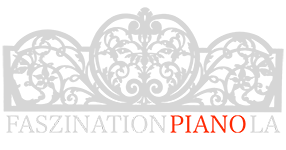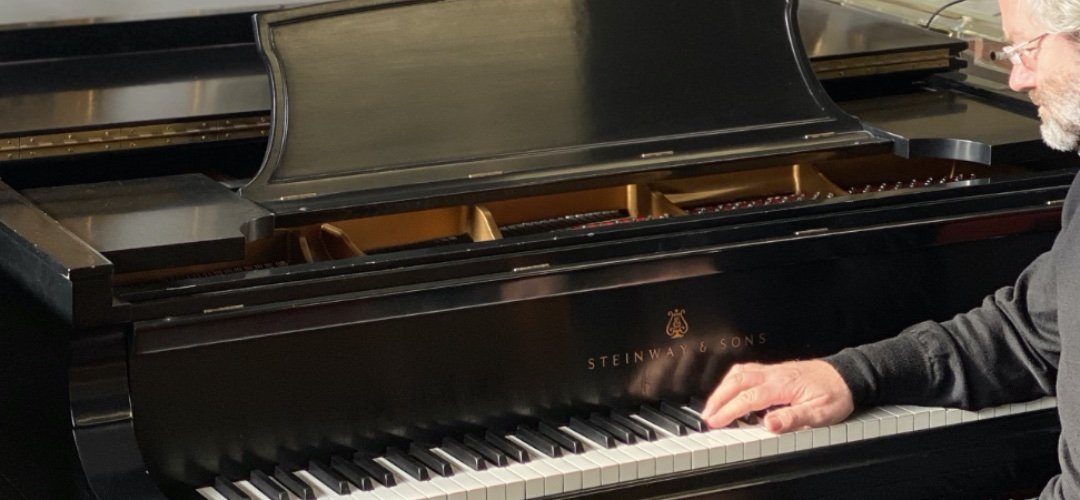The beautiful quote by Franz Liszt, "My piano is to me what the sailor is to his frigate, the Arab to his horse, moreover, my language, my life!", in one of his travel letters at the end of the 1830s, shows the possible high emotional value of a piano. The same can apply to beloved family instruments or pianos that have become dear to the heart for other reasons.
From our point of view a piano has several values,
- the emotional value
- the artistic value
- the historical value
- the economic value
- the ecological value
The artistic value
We see the musical value in the tonal beauty of an instrument - this can be quite unique, both for new instruments and for aged instruments that have developed a unique character.
The historical value
The historical value relates to aspects of instrument making, the history of piano building and the owners. Especially old pianos are often testimonials in their construction and thus only exist in limited numbers. If instruments have belonged to important personalities, this is also of historical interest. However, museums and collections are overflowing with such instruments and only very few instruments in private ownership still belong to this category.
The economic value
With regard to the economic value, the Bund Deutscher Klavierbauer (Association of German Piano Manufacturers), together with other experts, has compiled a valuation table with regard to the value development of pianos. Similar to the Schwacke List from the car trade.
Differentiated according to the piano quality in the classes 'lowest' to 'highest' - whereby 'highest' probably includes brands like Steinway & Sons etc., it is stated here that pianos lose their economic value completely after a few years, i.e,
- a piano of the lowest class after 15 years
- a middle class piano after 35 years
- a top class piano after 70 years
Of course, these are only orientation values, as the state of conservation, model and market all have an influence here. A Steinway piano, no matter what model, from the year 1950 - that is, according to the list in 2020 seventy years old - certainly does not have the value 0, but still a four- to five-digit euro amount.
The stated loss of new value is between 30-40% for all quality classes! Similar to a car, the buyer of a new piano 'loses' about 1/3 of the purchase price in the first year.
Even after the periods in the above table, a branded piano still has a residual value that usually remains stable. Depending on supply and demand, however, this can no longer be realized. In our understanding it still has its value.
If only the currently achievable sales price is considered as value, the European and American piano market is developing in a very unfavourable direction in terms of the performance of older pianos. A simple reason: the demand has been falling dramatically for years - at the same time there are millions of used pianos on the market. Only in markets where the demand is still rising or can rise, currently in Asia and Africa, is the situation different.
According to our observation, even German brand pianos are hardly for sale in Europe today - there is hardly any private demand - and thus the piano dealers are no longer interested in further instruments - their warehouses are usually overflowing. This development will continue. The number of advertisements for the sale of noble brands such as Ibach, Feurich and Blüthner is increasing significantly. A further tightening brings the rules for pianos with ivory on the keys, which are valid since 19.01.2022. Details can be found in our article 'Ivorykeys on pianos'. In extreme cases, this can make a piano unsaleable or greatly reduce its value and demand.
Apart from unique pieces and special rarities, a piano is not an investment object in the sense of a predictable increase in value. From this point of view, a piano is only worthwhile as an investment if it is not a new piano - and preferably a Steinway piano. Also brands like Blüthner, Bechstein, and meanwhile also Yamaha can be a reasonable investment, if the purchase price was adequate - and the instrument is well maintained.
For piano owners of a used piano the question 'What is my piano still worth? The answer is quite simple - exactly as much as it is still worth after a reasonable time. Dealers and collectors observe the private and commercial advertisements virtually to the day - their demand also clearly shows the current market value.
If you would like a concrete evaluation of your piano, we offer the assessment and evaluation of your instrument as a service with costs. You can find details of our offer here.
The ecological value
The ecological value of a piano has been little scientifically researched or publicly discussed to this day. Nevertheless, a piano requires many hundreds of hours of work and hundreds of kilograms of raw materials, which are produced using considerable amounts of energy and resources. Please also read our blog entry 'How do I dispose of a piano? ‚.
For us, recognising this ecological value means striving for the best possible ecological balance in production, preservation and final recycling. As with almost everything else, the purchase and maintenance of a used piano is therefore ecologically much better than the production of a new piano, since no new raw materials and energies are used. Even the careful renovation of an old piano means a significantly lower use of resources than a new piano. Please also read our offer on piano disposal.


